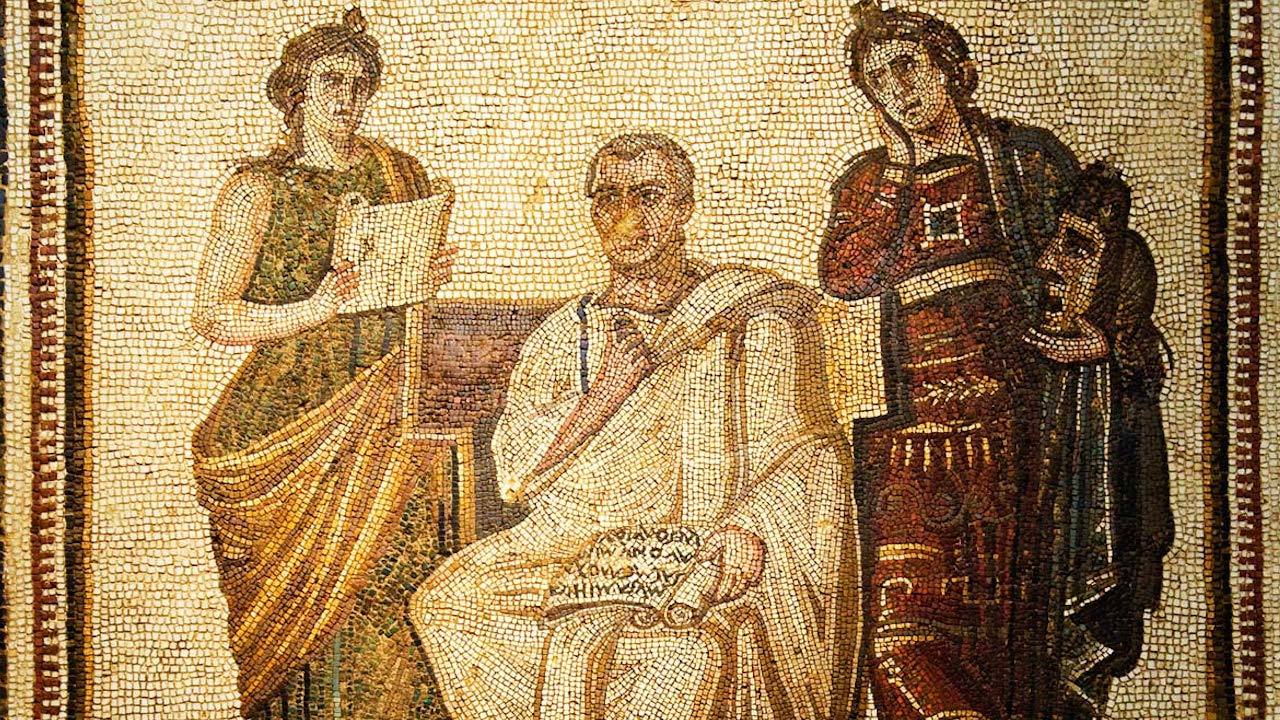The Latin poet Virgil holding a volume on which is written the Aenead. On either side stand the two Muses Clio (history) and Melpomene (tragedy). Hadrumetum (Sousse) - 3rd century A.D.
Wherefore the Word of God, which is also the Son of God, co-eternal with the Father, the power and the wisdom of God (cf. 1 Cor. 1:24), reaching from end to end mightily, and ordering all things sweetly (cf. Wis. 8:1), from the highest limit of rational beings to the lowest limit of material creation, present and hidden, nowhere confined, nowhere divided, nowhere distended, but without dimensions, everywhere present in totality – this Word of God took to Himself, in a manner wholly different from that in which He is present to other creatures, the nature of man, and made by union of Himself therewith the one man Christ Jesus, the mediator of God and men (cf. 1 Tim. 2:5), equal to the Father in His divinity, in His flesh, i.e., in His human nature, inferior to the Father, immutably immortal in respect of the divine nature, in which He is equal to the Father, and yet mutable and moral in respect of the infirmity which was His through His kinship to us. In this Christ there came to men, at the time which He knew to be most fitting and which He had determined before the world began, the teaching and the help necessary to the obtaining of eternal salvation. Teaching came by Him that those truths which to men’s advantage had been spoken before that time, not only by the prophets (all whose words were true) but also by philosophers and even poets and authors in all branches of letters (for who will deny that they mixed much truth with what was false?), presented by His authority in the flesh, might be confirmed as true for the sake of those who could not perceive and distinguish them in the light of essential Truth, which Truth was, even before He took upon Himself human nature, present to all who were capable of receiving truth. […] As to what relates to His teaching, is there now even an imbecile, however weak, or a silly woman, however degraded, that does not believe in the immortality of the soul and the reality of life after death? Yet these are truths which, when Pherecydes the Assyrian for the first time maintained them in discussion among the Greeks of old, moved Pythagoras of Samos so deeply by their novelty as to make him turn from the games of the athlete to the studies of the philosopher. But now what Virgil said we all behold: Assyrium vulgo nascitur amomum, the balsam of Assyria grows everywhere (Eclogue 4). And as to the help given through the grace of Christ, in Him truly are the words of the same poet fulfilled (Virgil, Eclogue
4):
Quo duce si qua manent sceleris vestigia nostri,
Irrita perpetua solvent formidine terras.
As leader, if any traces remain of our crime,
they will be annulled and release the lands from perpetual terror.
~St Augustine, Epistle
137, 3.2










